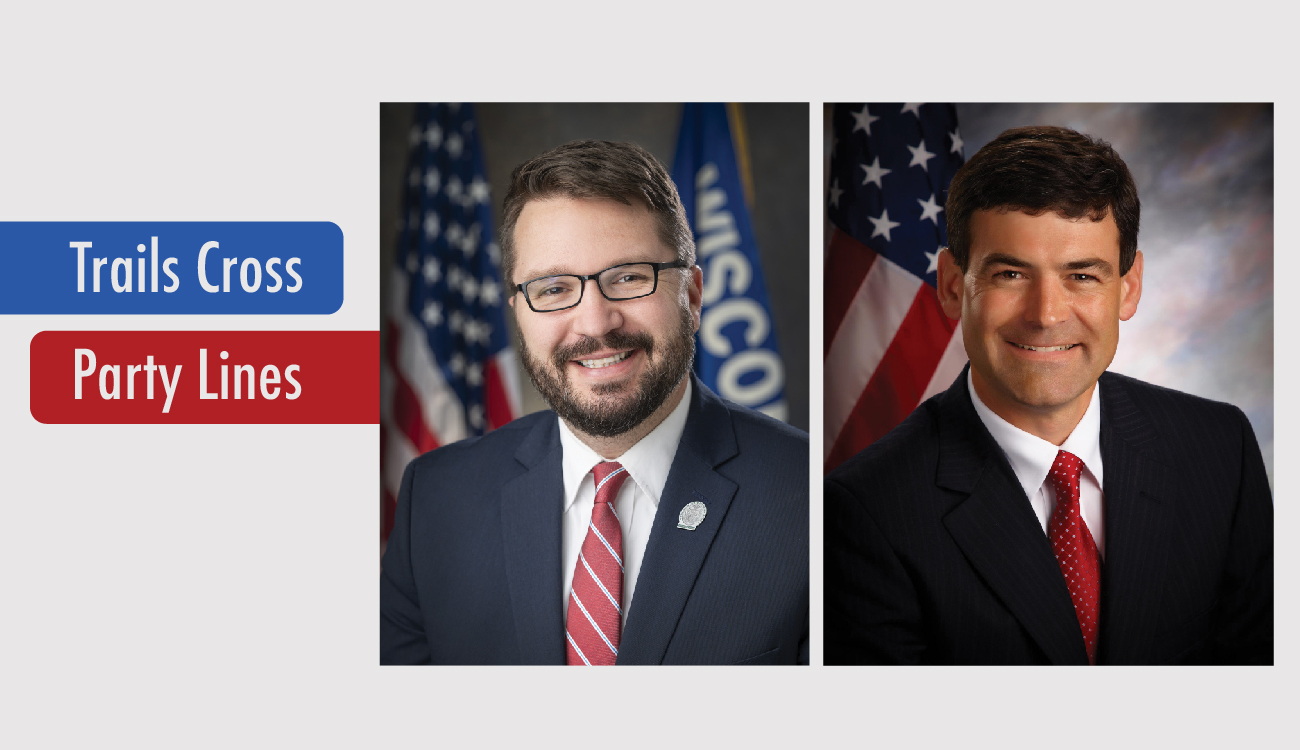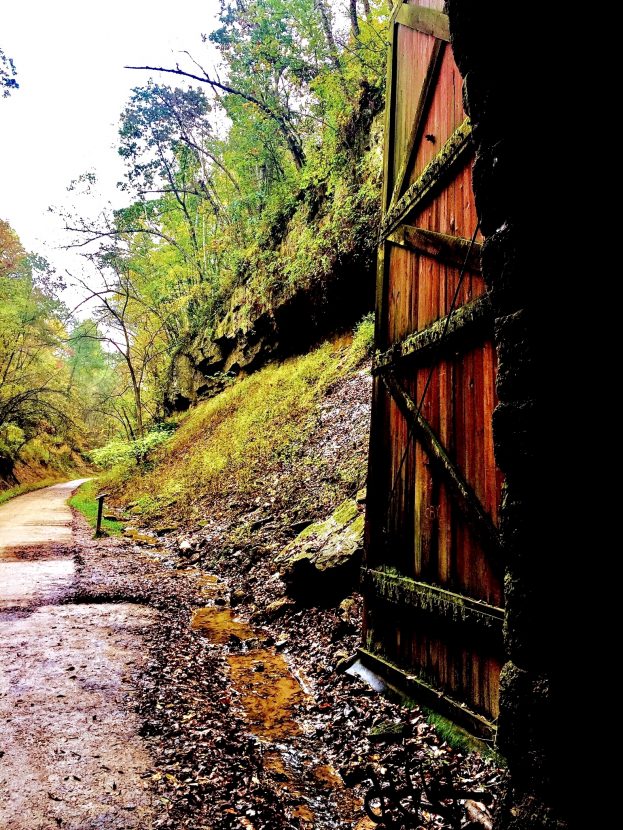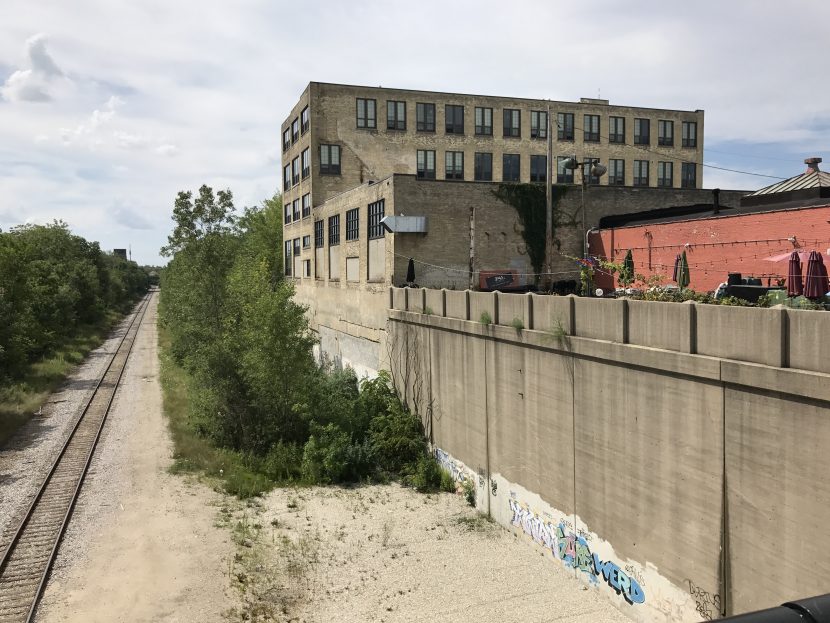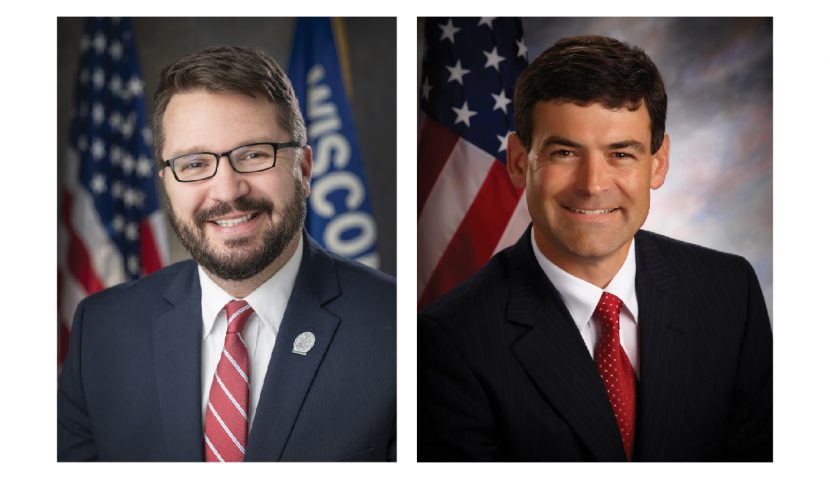
Trails Cross Party Lines
The Wisconsin Legislative Trails Caucus unites behind a winning issue
The Wisconsin Legislative Trails Caucus unites behind a winning issue
The Badger State offers exciting opportunities for residents and visitors to enjoy trails for biking, hiking, ATVing and snowmobiling, horseback riding and paddling. Wisconsin’s outdoor recreation economy currently generates around $18 billion in annual consumer spending and supports approximately 168,000 jobs. This past year elevated the importance of biking and trails in the midst of the COVID-19 pandemic, movement for racial equality and the climate crisis we must continue to actively address.
Dramatic increases in trail use — ranging from 70% to 200% in some places — during the pandemic highlights the importance of this critical infrastructure. This is an important time to continue funding trail development and maintenance given the challenges to meet the demands placed on our state’s trails systems. Public health officials emphasize the need to prioritize mental health and well-being in response to the pandemic, and “linear parks,” aka trails, provide safe and relaxing spaces that often allow for physical distancing.
“The need to get outside, to get fresh air, is something I see living so close to a trail. Seeing people get out to walk, bike and canoe has been a tremendous opportunity. We must prioritize repairing trails such as the Elroy-Sparta — a premiere trail with several segments closed since 2018, limiting the number of people who can get outside.”
Republican State Rep. Tony Kurtz
During the height of the pandemic, many municipalities opened streets to accommodate pedestrians and cyclists, further underscoring the need for trail networks that people can enjoy. Sustaining physical health is more important than ever now, and trails are ideal spaces for exercise — whether it’s walking, biking or rolling — and should be accessible to all Wisconsinites. The coronavirus has exposed many cracks in our social service systems, including the lack of safe places to bike and walk.
Republican State Rep. Tony Kurtz recognizes “the need to get outside, to get fresh air, is something I see living so close to a trail. Seeing people get out to walk, bike and canoe has been a tremendous opportunity. We must prioritize repairing trails such as the Elroy-Sparta—a premiere trail with several segments closed since 2018, limiting the number of people who can get outside.”

Trails Make Economic Sense
“Trails are an economic driver,” State Rep. Evan Goyke, a Democrat, emphasizes. “Imagine the opportunities for local businesses when we create and connect trails in urban, suburban and rural areas so that you can bike to anywhere in the state.”
State investments in trails provide significant bang for the buck. According to the Federal Highway Administration, trail projects bring more jobs per dollar invested than does road construction. Trails secure lasting economic benefits for communities as local businesses develop along trails — everything from ice cream shops and B&Bs — to attract visitors.
Wisconsin is in recovery mode and maintaining and expanding trail networks generates significant economic activity. During the pandemic, which cut global supply chains for materials and manufacturing, bike shops were unable to keep up with the demand for bicycles. Other outdoor recreation-related businesses experienced similar issues.
Equity Matters
These challenging times require thoughtful allocation of state resources to address the health and economic impacts of COVID-19. The current crisis has exposed many inequities in our state, and all Wisconsinites need and deserve access to safe and well-maintained trails.
“We must ensure that every resident of our state can take part in these tremendous quality of life amenities.”
Rep. Evan Goyke
“We must ensure that every resident of our state can take part in these tremendous quality of life amenities,” Goyke says. “Everyone wants to be included on the trail, and we must be intentional about accessibility for all and that we are connecting people to people, places and opportunities.”
Many are using trails for the first time during the pandemic, and lawmakers should leverage this by prioritizing the importance of trail systems and their many health, economic, recreational and environmental benefits. The development of urban trails in Wisconsin is helping to connect people to food, health care, jobs and education.
The transformative 30th Street Corridor, part of the 700-plus-mile Route of the Badger, exemplifies the potential for trail networks to connect people of all backgrounds and abilities to opportunities. This inclusive urban trail through the heart of Milwaukee, if built, will facilitate safe transportation, physical activity, tourism, recreation and a stronger business community. There is much to be done to make this project a reality, but the opportunities this trail presents would be transformative for the city.

Save The Planet
“Representing a rural area with two iconic trails running through it, I recognize that long-term funding for trail networks is critical,” Kurtz says. “The 2018 flooding led to small businesses losing 30% to 50% of their revenue because of the closure of the Elroy-Sparta State Trail, and many will likely close given the impacts of the pandemic.”
Severe weather incidents have become more common, highlighting the need to actively manage carbon emissions as well as to build more resilient trails. Investing in active transportation infrastructure is a meaningful response to the climate crisis since facilitating walking and biking can significantly lower our carbon footprint. Trails are an important aspect of active transportation infrastructure and serve to mitigate climate change.
Wisconsin’s active transportation infrastructure is uniquely positioned to expand trail networks, which would benefit the overall economy, environment and public health. Intentional investments to expand, connect and maintain existing trails (which is happening in neighboring Michigan, Minnesota and elsewhere) are necessary to remain competitive and attract businesses, jobs and talented workers.
Unfortunately, Wisconsin is currently investing less than half of its federal Transportation Alternatives Program (TAP) funds, which are designed to finance biking and trail projects. With better and smarter planning, the Badger State can create a truly transformative statewide trails system.

A Caucus Is Born
The bipartisan Wisconsin Legislative Trails Caucus has been championed by co-chairs Kurtz and Goyke. The caucus highlights the potential for trails to break through political division and increase the health and well-being of all Wisconsin residents. The collaboration of senators and representatives from all regions of the state is critical to establishing policies and sustainable funding mechanisms that facilitate planning, construction and maintenance of recreational trail and active transportation networks to build strong and vibrant communities.
“A Wisconsin Legislative Trails Caucus will facilitate conversations about policies that can streamline processes to help groups across the state build their trails,” Goyke says.
Trails caucuses have helped secure new funding and better policies for maintaining and connecting trails in such states as Ohio and Indiana, he noted.
Make A Difference
Ask your elected officials to make trails and active transportation infrastructure a priority. Share your stories about why trails are important to you with a letter, email or phone call. Better yet, take your legislators out on a trail for an impactful experience. However you’re able to interact, our state senators and representatives need to hear from you. Ask them to join the Wisconsin Legislative Trails Caucus to improve the lives of all Wisconsinites by using this form provided by the Rails-to-Trails Conservancy: rtc.li/WI_caucus.
As you enjoy the trails this year, #RecreateResponsibly and appreciate that your active use of these linear parks and transportation corridors is making the case to expand and maintain these networks. Support and encourage new trail users and celebrate the amazing Wisconsin trail system and its continuous improvement.
Brian K. Housh is the Midwest Policy Manager for the Rails-to-Trails Conservancy.